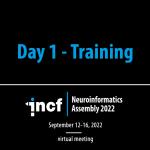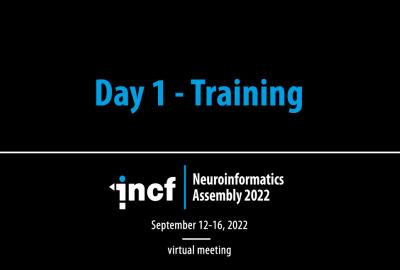Most neuroscience journals request authors to make their data publicly available in appropriate repositories. The requirements and policies put forward by journals vary, and the services provided for different types of data also differ considerably across repositories. Researchers trying to navigate to a suitable repository are challenged with several questions and a need to compromise parameters such as storage space available, time and efforts needed for data sharing, data governance considerations et cetera, all influencing the extent of FAIRness their data may achieve. Many journals provide data repository guidance, but with many options and priorities available, data tend to be dispersed across many repositories. In this session we discuss how journal policies and recommendations contribute to open and FAIR neuroscience and influence the findability and interoperability of public data.
Session 8: FAIR Data: The Role of Journals
This brief video gives an introduction to the eighth session of INCF's Neuroinformatics Assembly 2023, focusing on FAIR data and the role of academic journals.
This brief talk outlines the obstacles and opportunities involved in striving for more open and reproducible publishing, highlighting the need for investment in the technical and governance sectors of FAIR data and software.
This talk gives an overview of the complicated nature of sharing of neuroscientific data in an environment of numerous and often conflicting legal systems around the world.
This talk describes the challenges in sharing personal, and in particular, health data, such as data anonymization and maintaining GDPR compliance.
In this short talk you will learn about The Neural System Laboratory, which aims to develop and implement new technologies for analysis of brain architecture, connectivity, and brain-wide gene and molecular level organization.
This talk gives an overview of the perspectives and FAIR-aligned policies of the academic journal Public Library of Science, better known as PLOS. This journal is a nonprofit, open access publisher empowering researchers to accelerate progress in science.








